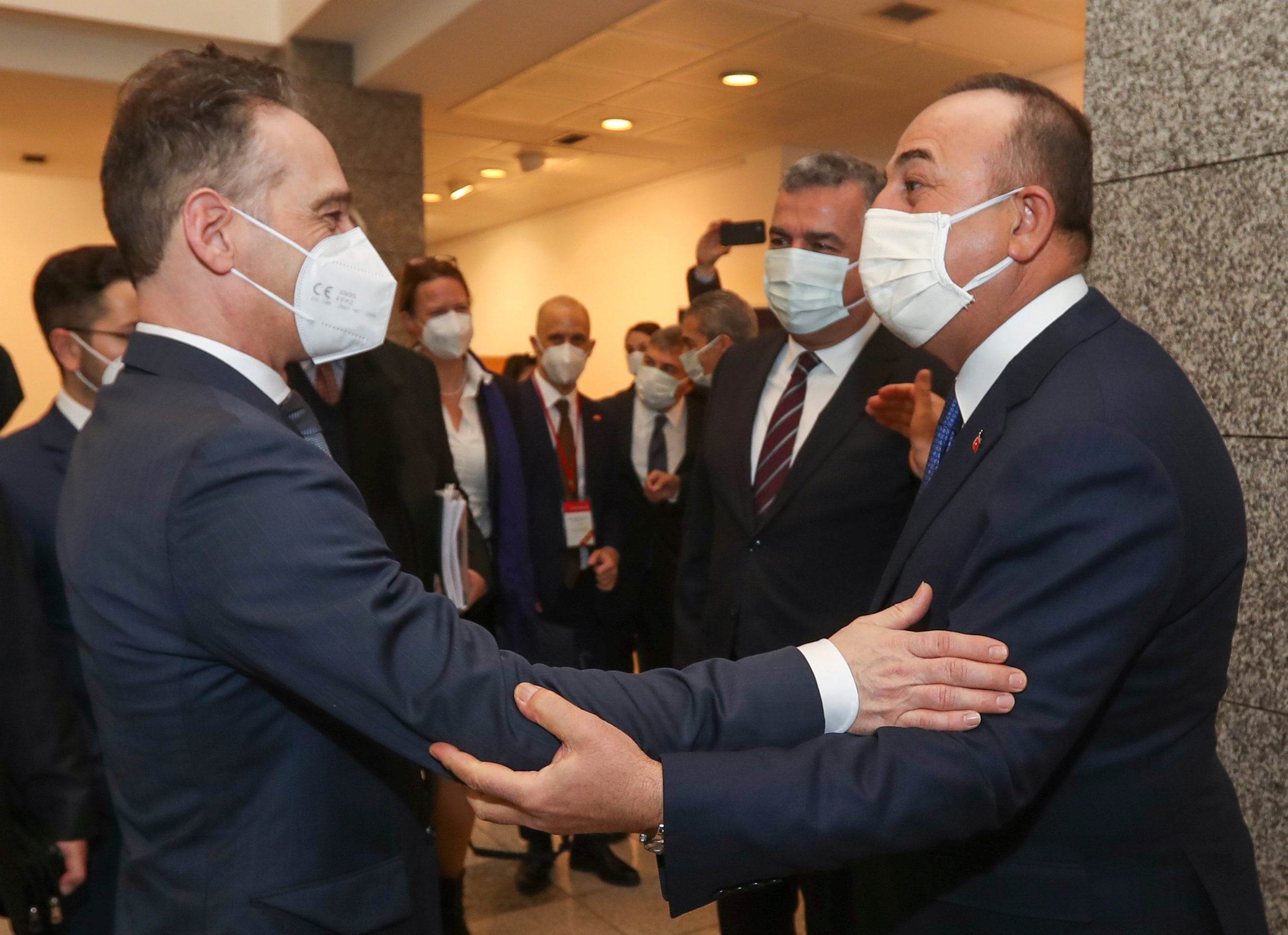Germany, Turkey seek better EU-Turkish ties as tensions ease
The German and Turkish foreign ministers have sought to boost prospects of better relations between Ankara and the European Union as Turkey and neighboring EU member Greece embark on much-awaited steps to solve a long-running dispute

The German and Turkish top diplomats on Monday sought to boost prospects of better relations between Ankara and the European Union as Turkey and neighboring EU member Greece embark on steps to solve a long-running dispute.
Germany has been trying to help ease tensions between NATO allies Turkey and Greece. Turkish Foreign Minister Mevlut Cavusoglu said after meeting his German counterpart Heiko Maas in Ankara that there has been a “positive atmosphere” for EU-Turkish relations in recent days, following a tumultuous 2020.
Turkey and Greece last summer came close to blows due to a dispute on maritime boundaries and offshore energy rights in the Eastern Mediterranean.
Last week, Athens and Ankara announced the resumption of exploratory talks and both sides have indicated they would be open to a meeting between the two countries’ leaders. The Turkish defense ministry said a technical meeting with Greek counterparts was taking place Monday at NATO headquarters.
“With the announcement of direct talks, the window for a diplomatic solution that had been closed since 2016 is slightly open again,” Maas said. “I think all participants are aware that this process will not be easy, but I am convinced that if both sides approach these talks with sustainable intentions and the necessary pragmatism, political solutions can ultimately be found.”
The disputes “are very complicated but they are not insoluble,” Maas added.
Cavusoglu insisted that Turkey has always been ready to talk with Greece without any preconditions. But he asserted that Athens may be trying to provoke Ankara in a bid to force its hand to respond and then ask for the EU to impose sanctions.
“We want to continue this positive atmosphere but unfortunately Greece is continuing its provocations in this period as well,” Cavusoglu said, accusing Greece of attempting to arm demilitarized islands and criticizing Greek military exercises, maritime announcements and a recent statement by the Archbishop of Athens considered by Turkey to be anti-Muslim.
“We are not a country that fears sanctions but we don't want to continue with this negative agenda and sanctions,” Cavusoglu said.
Across the Aegean, Greek Prime Minister Kyriakos Mitsotakis said he welcomed the resumption of contacts, saying he was counting on international law as well as Greek defense capabilities.
In December, the European Union gave the green light for sanctions against individuals over Turkey's exploration of gas reserves in waters claimed by EU members Greece and Cyprus.
Though Ankara has repeatedly said sanctions would not deter Turkey from defending its energy rights, Turkish President Recep Tayyip Erdogan has expressed a readiness to put frayed relations with the EU “back on track.”
If the efforts at detente succeed, Maas said at Monday's news conference with Cavusoglu that he expects “a significantly more constructive relationship, for the good of both sides.”
But he also delivered a pointed message to Ankara ahead of his arrival, noting the difficulties of 2020 and warned that “this playing with fire must not be repeated.”
—-
Geir Moulson in Berlin and Derek Gatopoulos in Athens contributed to this report.
Bookmark popover
Removed from bookmarks